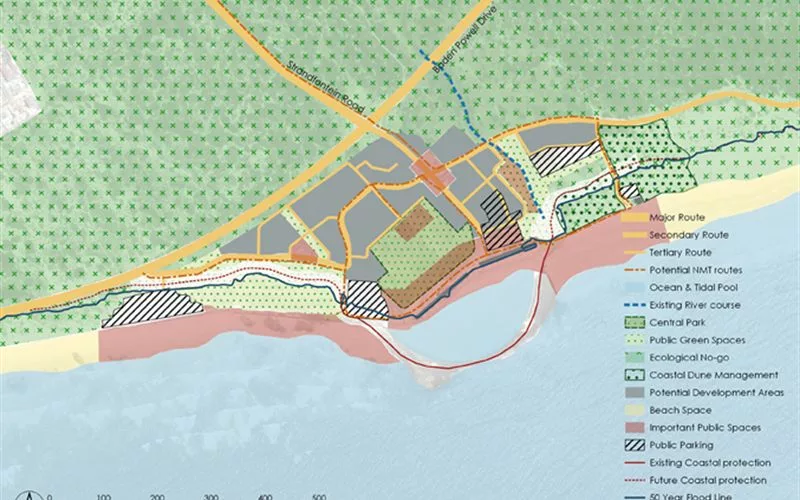The South African Electoral Commission is launching a voter registration initiative to encourage eligible citizens to participate in democracy. The initiative includes operating over 23,000 registration stations across the country, eliminating the need for form fillings, and encouraging adult South Africans to enlist as voters. The Commission is promoting accessibility, inclusivity, and efficiency in its plan, which includes technological advancements and partnerships with the Department of Home Affairs. The Commission’s efforts demonstrate a commitment to cultivating a comprehensive political landscape and cultivating a sense of democratic obligation among South Africans.
What is the South African Electoral Commission’s Voter Registration Initiative?
The South African Electoral Commission’s Voter Registration Initiative is a plan to broaden the scope of the voters’ roll by fostering widespread participation among eligible citizens. The commission plans to operate 23,296 registration stations across the country, functioning from 08h00 to 17h00, providing equal opportunity for all South Africans. The initiative eliminates the need for form fillings at the stations, reducing the time devoted to actual registration, and encourages adult South Africans to enlist as voters.
In response to global democratic decline, the South African Electoral Commission stands out as a model of readiness and accessibility. The Commission recently confirmed its preparedness for a weekend dedicated to general registration, slated for 18th and 19th November 2023. This forms part of the extensive groundwork for the 2024 National and Provincial Elections.
This plan, demonstrating an exceptional democratic ethos, seeks to foster widespread participation among eligible citizens. The Commission plans to operate 23,296 registration stations across the country, functioning from 08h00 to 17h00, providing equal opportunity for all South Africans. The inclusivity promoted by these registration weekends underscores the Commission’s dedication to cultivating a comprehensive political landscape.
Following the 2022 Census, the South African population has swollen to 62 million, with a predicted voting age populace of roughly 39.7 million. However, the current voters’ roll lists only 26.2 million, accounting for a paltry 66 percent of the potential voting demographic. The forthcoming registration weekend is hence a tactical move to broaden the scope of the voters’ roll, a national necessity.
Section 2: Logistics and Implementation
Diving into the operational details, lease contracts for permanent polling stations have been finalized and are primed for execution. A majority of these stations, precisely 62 percent, are located in schools. Places of worship make up approximately 9.7 percent, and the remaining 28 percent is spread across community centers or other municipal buildings. The Commission also possesses an extra 959 provisional polling stations to ensure maximum accessibility.
The Commission has also assembled a formidable workforce of 69,718 members for this registration weekend. This diverse group, primarily comprised of women and young individuals under 35, also includes a substantial proportion of jobless persons, indirectly contributing to job creation, albeit temporary.
The Commission has embraced technological advancements in its robust plan. Voter Management Devices (VMDs), launched initially in 2021, are set to be instrumental in the registration process. These devices, which have seen substantial upgrades, will run three crucial applications for staff attendance, polling station monitoring, and voter registration. Equipped to function both online and offline, these devices assure a smooth shift between modes, guaranteeing continuous operation.
On 28th October, the Commission carried out a preliminary trial to ensure efficient operation. Essential voter registration supplies, including VMDs, stationery kits, directional signs, and document storage boxes, have been sent out and received throughout all provinces.
Prioritizing efficiency, the registration process eliminates the need for form fillings at the stations, reducing the time devoted to actual registration. Since the inauguration of the online registration portal in July 2021, the Commission has recorded 1.1 million registration transactions.
Additionally, the Commission has acknowledged the Department of Home Affairs for their contribution to aid the pickup of identity documents during the registration weekend. This joint effort strengthens the democratic process, providing qualified citizens with the optimal chance to register on the voters’ roll.
In its quest to instill a democratic obligation, the Commission is encouraging adult South Africans to enlist as voters. Only those on the voters’ roll are permitted to engage in the electoral process. Registered voters are also urged to validate their details at registration stations, a vital measure in view of changes to the electoral rules.
To further simplify the registration process, the Commission has set up a contact center, webchat, and WhatsApp chats, offering extensive information to prospective voters. The Commission’s media presence extends to Instagram, YouTube, and X (previously Twitter), enhancing its connection to the tech-savvy population.
With the Electoral Commission leading this democratic endeavor, it delivers an unequivocal message to South Africans: democracy is a shared duty. It is a summons to claim and mold the nation’s democratic path, a rallying cry that echoes the Commission’s motto, “It Is Your Democracy. Own It!”
1. What is the South African Electoral Commission’s Voter Registration Initiative?
The South African Electoral Commission’s Voter Registration Initiative is a plan to broaden the scope of the voters’ roll by fostering widespread participation among eligible citizens. The commission plans to operate 23,296 registration stations across the country, functioning from 08h00 to 17h00, providing equal opportunity for all South Africans. The initiative eliminates the need for form fillings at the stations, reducing the time devoted to actual registration, and encourages adult South Africans to enlist as voters.
2. What is the purpose of the South African Electoral Commission’s Voter Registration Initiative?
The purpose of the South African Electoral Commission’s Voter Registration Initiative is to encourage eligible citizens to participate in democracy by registering to vote. The initiative promotes accessibility, inclusivity, and efficiency in its plan, which includes technological advancements and partnerships with the Department of Home Affairs. The Commission’s efforts demonstrate a commitment to cultivating a comprehensive political landscape and cultivating a sense of democratic obligation among South Africans.
3. When is the general registration weekend for the South African Electoral Commission’s Voter Registration Initiative?
The general registration weekend for the South African Electoral Commission’s Voter Registration Initiative is scheduled for 18th and 19th November 2023.
4. How many registration stations will the South African Electoral Commission operate during the Voter Registration Initiative?
The South African Electoral Commission plans to operate 23,296 registration stations across the country during the Voter Registration Initiative.
5. What technological advancements will be implemented during the South African Electoral Commission’s Voter Registration Initiative?
The South African Electoral Commission has embraced technological advancements in its plan, including Voter Management Devices (VMDs) that will run three crucial applications for staff attendance, polling station monitoring, and voter registration.
6. How can prospective voters receive information about the South African Electoral Commission’s Voter Registration Initiative?
Prospective voters can receive extensive information about the South African Electoral Commission’s Voter Registration Initiative through the Commission’s contact center, webchat, and WhatsApp chats. The Commission’s media presence extends to Instagram, YouTube, and X (previously Twitter), enhancing its connection to the tech-savvy population.








